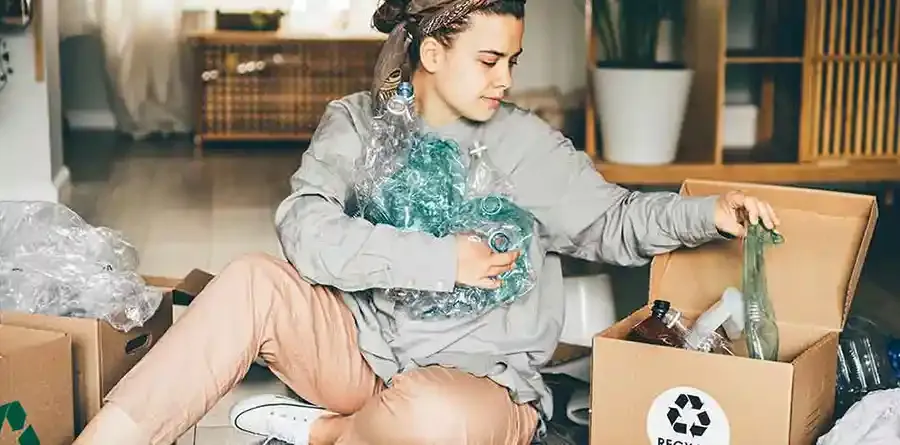Hyundai Motorstudio Senayan Park
Hyundai Motorstudio Senayan Park
Newsroom
The official news from Hyundai Motorstudio Senayan Park and a collection of innovative articles on mobility and sustainability here.
-
How to Dispose Household Waste (Best 7 Methods)
- Hyundai Motorstudio Senayan Park Senayan Park 2022.06.02
-
Processing household waste is a must, especially for modern houses. There are a number of methods that can be used to prevent, reduce, process, and even reuse. So, how to dispose household waste?The most common types of household waste are food waste, vegetables, product packaging, plastic, washing water, and materials that are no longer used.Household waste can be varied, from solid and liquid waste to organic and inorganic waste. Because of this diversity, the methods needed to treat waste are clearly different from one to another.
How to Dispose Household Waste
Sorting and selecting the type of waste is a must step before processing waste. For example, organic waste can be processed into compost, plastic can be made into creative products, and so on.1. Composting
Organic waste is often taking the first place in household waste. Many vegetables are wasted when processed, while a lot of food remains wasted after serving. The two examples are classified as organic waste which can be processed as compost.Making compost is actually easy. Just put all the organic waste in a container and let nature do their magic. The compost can be used as a natural fertilizer. Some farming communities are interested in compost, giving it an economic value.2. Repurpose
Instead of throwing away anything, some objects can be reused until they lose their function and shape. Plastic is one of the most common items that can be reused until it is completely torn apart. Some bottles can be reused, while cardboard can be used as a storage container.Likewise, paper can be processed into creative products. This method prevents the waste because it is converted into new products that have benefits.Unlike others, hazardous waste must be treated with care. It is not wise to immediately dispose of batteries, expired drugs, and other medical waste. Chemicals can leak into the soil and be toxic, making the surrounding area dangerous.3. Avoid Products That Would Be Trash
This method has a direct effect on reducing household waste. The point, avoid buying products that are not needed, including clothing and household appliances. If you have to buy, choose a durable product that offers a long lifespan.Or, if you feel you don't need products anymore, sell them online or give them to those who need. Including how to dispose household waste, fix any damaged furniture then reuse it.4. Sorting waste
It is very important to sort waste before actually throwing it away, especially when some household waste contains hazardous property. Separating waste based on its shape and characteristics will ease you which waste can be repaired or processed.The data shows that 81% of waste in landfills has not been sorted. In fact, 58% of households are reluctant to sort their waste due to hassle. Dry waste such as plastic, paper, glass, and other materials can be processed into other products.Wet waste such as vegetables, food scraps, fruit and others must be separated to make it easier to compost. There is also household waste which is considered hazardous waste including cables, batteries, paint, floor cleaners, cosmetics, as well as expired drugs.5. Avoid Trash
It is not an easy task to reduce household waste, but with a simple trick, it is actually enough to contribute to waste reduction. So, it's a good idea to buy products with a recycled or reused label.Another trick is to buy the big packs instead of the smaller ones to avoid more waste. If possible, bring your own drinking bottle instead of buying new. The same goes for vegetables and food.Sellers sometimes wrap it in plastic. If the reason is hygiene, the vegetables will still be washed before processing. So, avoid vegetables and food wrapped in plastic to reduce waste. Any packaged foods will add to household waste.6. Avoid Plastic and Paper
In particular, plastic and paper are the higher two wastes. In fact, 35% of the waste in landfills contains paper. In this all-digital era, everyone has turned to electronic transactions and ideally paper usage can be reduced.Paper cups for example, even though they seem environmentally friendly because it can be decomposed, unfortunately, this product will end up in the trash.It is not recommended to store food using plastic containers because of the chemical content. Use a glass container because it is healthier for the family and the environment.7. Apply the 3R
The 3R is a rule in waste management, which stands for reduce, reuse, and recycle. The 3R principle can also be defined as a process of sorting and selecting waste according to its characteristics. With the 3R principle, bottles will not end up on the road or public places.If it has a reuse label, it means the bottle can be used for the same thing. If being labeled as recycle, bottles can be processed into other forms such as wall ornaments, vases, or other.The point to remember is that not all household waste is the same. Some types of waste require more commitment to manage, while others do not. That’s why, it is important to understand the waste management to avoid polluting the environment.




